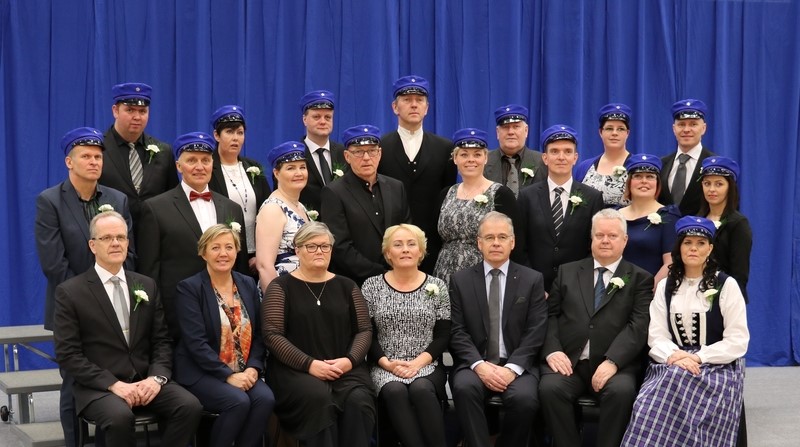One in three adult Icelanders had no more than an elementary school education in the year 2000, and got no continuing education through their work. Since then, the social partners have developed a learning centre for further training of people with lower education levels. This has helped reduce the share of lower educated. It used to be 33 percent, now it is 25 percent of the low-educated workforce.
Over the past 17 years, Iceland’s social partners have developed an official continuing education based on skills validation. This means workers can shorten their training periods, because they do not need to study topics which they, according to the validation, already know through their work.
The Education and Training Service Centre (ETSC) has, in cooperation with its partners, developed three methods to get people into adult learning programmes:
- A visit to businesses by a representative from the adult education programme
- A presentation of the existing training and work opportunities
- Guidance is then given and the continuing education is shaped based on the skills validation which will be applied to each and every person before they begin their training
They are not incompetent
Sigrún Kristín Magnúsdóttir is the Icelandic coordinator for the Nordic Network for Adult Learning. She says people with low education levels are never considered to be incompetent in the labour market. On the contrary – they often know their job, but lack formal further training in for instance computer programs and languages.
Fisheries represent one of Iceland’s largest industries. It has changed rapidly in the past 20 to 30 years. While there used to be no need for specialist education in order to work in the trade, today you need more skills.
Three years ago, the fisheries company FISK Seafood in the town of Sauðárkrókur in Northern Iceland went into a skills development cooperation with the adult education provider Farskólinn, the upper secondary school in Sauðárkrókur and the vocational training program offered by the fisheries in the town of Grindavik in Southern Iceland.
Farskólinn is in charge of the practical education programme.

FISK Seafood’s first personnel group graduated in 2016. Ágúst Marinósson in the centre
The training has been successful and has collected several awards. FISK Seafood’s first group of employees began training in 2014 and graduated in 2016. Group number two has now started their training.
Skills validation first
FISK Seafood’s employees are first offered skills validation in order to map which skills each person has in his or her job. Based on this, the person will then be offered specialised training leading to a formal exam, within for instance fisheries.
Ágúst Marinósson finished elementary school and has trained as a police officer. He worked as a police officer for ten years and as a professional fisherman at FISK Seafood for 17 years. He then left and started working at FISK Seafood’s fish processing plant. Ágúst attended the training for fisheries employees between 2014 and 2016. He enjoyed the school. The studies were useful.
“The course was very much focused on information technology. We have computers at work and must be able to master that bit,” explains Ágúst Marinósson.
“We then repeated general topics like mathematics, Icelandic and English. It was 40 years sine I last went to school, so it was good to be able to freshen up my knowledge a bit,” he continues.
Ágúst feels the greatest advantages his studies have brought is a higher salary and a strengthened position in the workplace.
Good effect
FISK Seafood’s Guðrún Sighvatsdóttir hopes the fisheries education will make people stay and work for them. He says the training so far has had a good effect.
“Those who did the training now do a better job. Workers became more interested in their job and no longer focus solely on their own tasks. They also now think about how other parts of the business and the entire trade work,” she says.
Guðrún also points to the fact that you did not use to need specialist education for work within the fisheries industry. Today various skills are needed, for instance languages. Employees need to speak English, since machinery and computer programs often demand it. Packaging for export is always printed in foreign languages.
“It is important to link businesses and the training. The education could well be an answer to businesses’ needs, and from that starting point you can develop a curriculum. But the incentive to study must come from the businesses,” says Guðrún Sighvatsdóttir.
Icelandic authorities now also contribute to the funding of continuing training for people with low education levels.
- Icelandic FISK invests in further education
-
The Icelandic fish company FISK Seafoods has invested in further training. Fisherman Ágúst Marinósson (pictured above) has completed training in the fishing industry in Sauðárkrókur, northern Iceland.
 Follow us on Facebook
Follow us on Facebook
